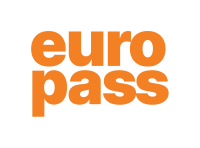
Digital Citizenship and Media Literacy: Sharing the Responsibility
Participants will acquire an awareness of the morality and consequences of their online activities, therefore developing the capacity to enhance digital literacy in their classroom. Moreover, they will learn to create a safe online environment by fighting disinformation and developing an appreciation for the need to evaluate and filter digital content.
Description
We have all experienced times when a lack of care in online activities has brought unexpected and potentially negative results, for ourselves or our students. Perhaps we have shared inaccurate information, without being vigilant in checking our sources, and then had to spend time making corrections and apologies. Or maybe we have made a public comment that we later regretted in a forum or a social platform. This course stresses the importance of ensuring that students and teachers are aware of the morality and consequences of their online activities - i.e., what constitutes being a good “digital citizen”. During this course, participants will raise their awareness of the complex personal and social issues involved in allowing students to work, learn and interact online, both for themselves and as representatives of their families and their school communities. The course will also stress the importance of teachers guiding their students in behavior that will keep them safe in online environments. Participants will be provided with examples of a range of existing school-wide policies and processes designed to ensure that students (and teachers) are well informed about what being a responsible “digital citizen” looks and feels like. By the end of the course, participants will be well prepared in a range of behaviors and practices to enhance digital citizenship and media literacy, including how to guide students in acquiring digital skills and competencies from an early age, how to promote digital literacy, and fight disinformation, how to evaluate and filter data, information, and digital content, how to protect devices and people through careful sharing of personal details as well as the h...read more.
Learning objectives
The course will help the participants to:
- Appreciate the complex personal and social issues involved in giving students access to the Internet at school;
- Understand the rights and responsibilities of being a responsible digital citizen;
- Design and create a Digital Citizenship Agreement;
- Prioritize content for a Digital Citizenship Curriculum;
- Develop a repertoire of strategies, tools, and techniques to engage students in learning about how they can keep themselves and others safe while online;
- Experience and analyze the real and potential impacts of positive and negative online behaviors.
--> Download all course info in PDF <--
Methodology & assessment
Certification details
Here's how we ensure your achievements are recognized and validated:
- Certificate of Attendance: Upon successful completion of your course, you will receive a Certificate of Attendance in line with Erasmus quality standards.
- Europass Mobility Certificate: If requested, you can also receive the Europass Mobility Certificate.
- Seamless Administration: We provide assistance and guidance to our participants throughout every step of the project: from the grant application to the final documents.
To make your participation accessible, our courses are designed to allow you to request 8 days of individual support for your subsistence costs. This includes 6 days for the course and an additional 2 days for travel.
Useful resources:
- Live Chat support: Monday-Friday | 8:30-22:30 CET
- FAQ
- Guides to Erasmus+
- OID Numbers and Fiscal Data
A 60 € late registration fee will be applied if you register less than 8 weeks before the course start date.
Pricing, packages and other information
-
Price:480Euro
Additional information
-
Language:English
-
Target audience ISCED:Primary education (ISCED 1)Lower secondary education (ISCED 2)Upper secondary education (ISCED 3)
-
Target audience type:TeacherHead Teacher / PrincipalICT Coordinator
-
Learning time:25 hours or more
Past sessions
More courses by this organiser

From CLIL to Translanguaging: Strategies to Integrate Migrants

Student-Centered Education: Making Learning Exciting and Long Lasting


